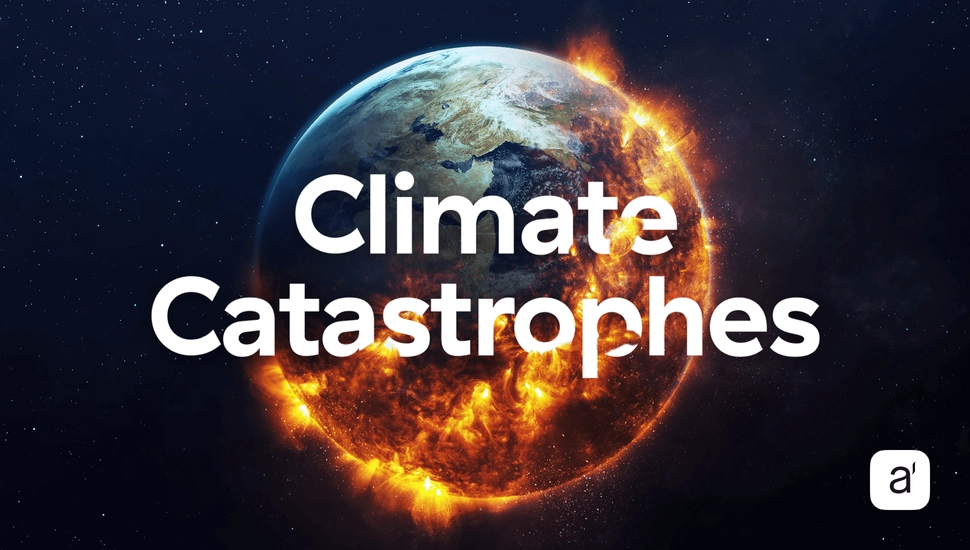We are not as far removed from Pakistan’s floods as we may think
Flood risks currently affect 1.81 billion people, with 70% of people exposed living in South and East Asia. Around sixteen football pitches of trees per minute were lost to forest fires in 2021, with the fires becoming twice as frequent and severe as they had been twenty years ago. Rising global temperature is diminishing agricultural productivity, with land in Spain, Italy, Greece, the Sahel, and western North America being at high risk of desertification. Extreme weather is thought to cause the loss of 167 million homes globally by 2040. This summer, the world saw concurrent heatwaves that claimed thousands of lives, with 40.3°C reached in the UK for the first time ever.
These are just some of the effects of climate catastrophes experienced within the last year, and that we can continue to anticipate.
The recent floods in Pakistan have impacted 33 million people and submerged a third of the country. Think half the entire population of the UK and the entire island (and then some) under water, and this is only the most recent addition in a growing list of ‘natural’ disasters.
But the floods, fires, hurricanes, and heatwaves we once called natural, and could previously dismiss as being ‘way over there’ are now neither of those things. Recent events such as record breaking temperatures and a drought so severe that dead grass and dried up rivers could be seen from space show the direct impact climate change is having on the UK. The droughts alone had a knock on effect on farming and agriculture, and subsequently, food prices and quality in the midst of an already challenging cost of living crisis. While studies indicate that not only are these catastrophic events caused by human behaviour, they are also disproportionately contributed to by ‘developed’ nations, while ‘developing’ nations foot the very physical, life-threatening, and almost irreversible bill.
Top climate contributors include: the United States, the United Kingdom, China, Russia, and Germany - all countries with some of the most influential global decision makers with the power to address the issue of climate change on an international scale, as well as having the greatest responsibility to hold themselves accountable.
While these nations, amongst others, congregate regularly at summits and conferences, to speak of the need for ‘meaningful and effective actions’ on climate change they have been criticised as lacking ambition. Take the Paris Agreement, drawn up in 2015 with the central aim to limit global temperature rise well below two degrees. Yet seven years later, fossil fuel financing by the world’s 60 major banks has reached $4.6 trillion, with $742 billion in fossil fuel financing in 2021 alone. World leaders have reached a consensus on the aim of reaching ‘net zero’ by mid-century but climate scientists have stressed that this reduces the urgency to act. While we can limit some of the worst effects of climate change through major action, reversing global warming seems to be out of the question.
There’s no longer a question of whether or not extreme weather is just a part of the natural order of things and something we can barely understand let alone control. Our actions, as nations and individuals, are having a measurable and palpable impact. Limiting the looming disastrous effects of climate change requires an entire rehaul of how we behave: how we extract energy, how we consume (both food and material goods), how we travel, and how we manage our money.
Introducing sustainable alternatives into our lifestyles can sometimes feel disruptive, inconvenient, and becomes off putting. Switching to a sustainable account however, is as easy as going from single use to reusable water bottles. At the core of Algbra’s inception is to be green without compromising the quality of the product being offered. We offer a guarantee to customers that their money will never be invested in fossil fuels, amongst other unethical industries like arms, tobacco, or gambling.
On a personal level, we may wonder how much responsibility we have individually, and while this debate may rage on, the Algbra App allows customers to quantify the carbon footprint of each purchase, and to offset it by supporting a project in some of the countries worst affected by climate change: developing communities through hydropower in Vietnam, supporting sustainable infrastructure in Bangladesh, and generating renewable energy in Indonesia.
While we may be more motivated to act now that we’re feeling the direct effects of climate change - and these will only become more disruptive as the years progress - nations such as Afghanistan, Chad, and Kenya have felt them for decades as a result of the actions of industrialised nations. Beyond being shocked by the images coming out of Pakistan, and Bangladesh only a few months prior, we should feel responsible and spurred on to change our behaviours.




